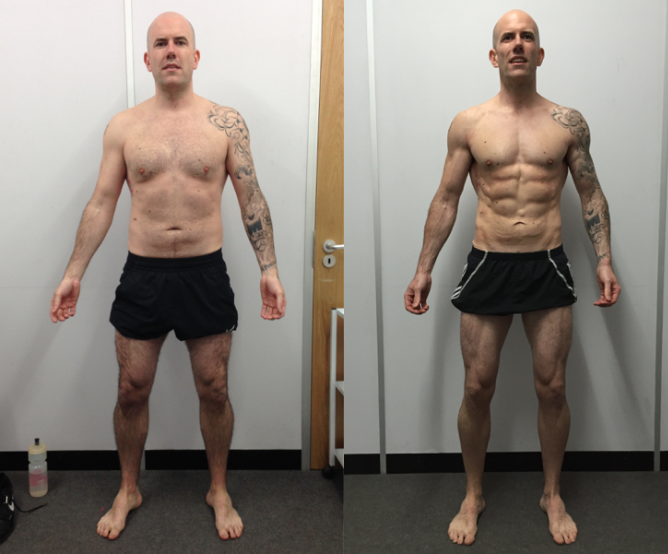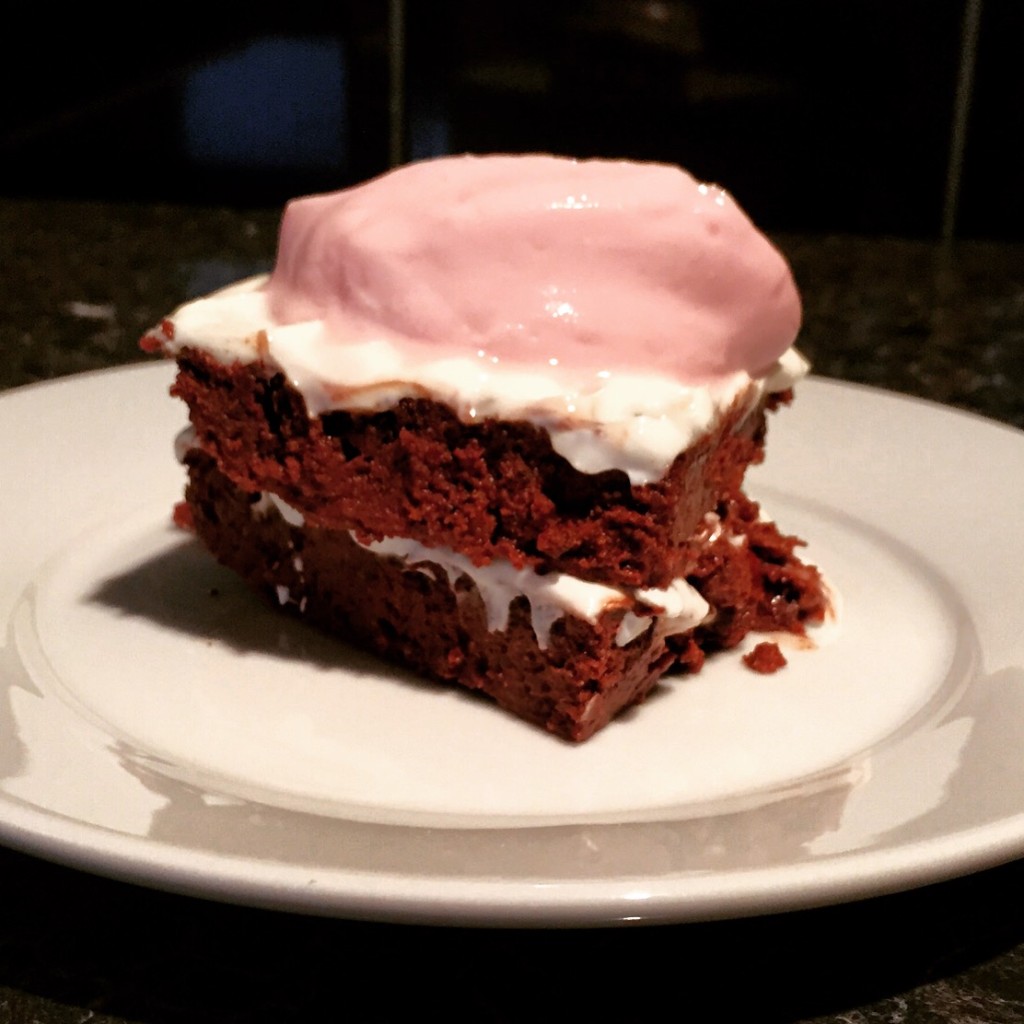How Do We Lose Body Fat? (Part One)
With a quarter of all adults in the UK having a BMI indicating obesity and 42% of men and 32% of women being classed as overweight, it’s no wonder that 29 million of us Brits are trying to follow a diet to lose weight.
However, few are successful, and even fewer are successful in keeping the weight off. There are myriad reasons of why this may be, one of them being a lack of education, or more specifically perhaps, how weight loss actually occurs. You can then use this information, establish a connection of why your diet worked in the first place and make a change to your normal way of eating.
A better understanding of this may increase your success in losing weight and body fat and maintaining your new body.

In part one, here we’ll lay down the law on calories and nutrients, take a look at how body fat is created and burned. In part two, we’ll put this knowledge to use and learn how to create your very own personalised diet that fits to your lifestyle, not the other way round.
How Body Fat is Stored and (hopefully) Burned Off
Our bodies are built for survival, so in times of energy excess, or when we consume more calories than we expend, we store this excess energy as body fat, spare for in times of need.
This process of calories in vs calories out is known as energy balance.
The increase in body fat is caused either via fat cell hypertrophy (increase in size) or hyperplasia (increase in number), with these processes fuelled by the excess energy.
Some may argue that calories and energy balance doesn’t matter or say overly simplistic, quite unhelpful statements like “eating too much sugar makes you fat”, or “you have to eat fat to burn fat.”
Whilst I agree that solely looking at calorie intake isn’t the be all and end all, as there are other nuances at play when it comes to losing weight (in some cases certain hormone levels, stress, sleep etc.). That being said, a large body of scientific evidence says a calorie deficit must be in place in order to lose body weight/fat. It has been demonstrably repeated in plenty of different clinical trials, further strengthening the evidence.
Simply put, if we are in a calorie deficit, we break down and use stored energy in body fat. The body fat is broken down into fatty acids and glycerol via a process called lipolysis, and is then transported to the cells that need the energy. This process also produces a large amount of carbon dioxide which we breathe out through the lungs and a small amount of water which is excreted through urine, sweat etc.
So we actually breathe, wee and sweat the fat out of us, kind of a weird concept!
Regardless of which diet or approach you choose to follow, whether that be the Atkins diet, low carb diet, Paleo diet, Zone diet, or the Double Decker chocolate bar diet (yes, apparently it is a real thing!), the underlying principle as to whether it works or not is if the calorie deficit is present. That being said, the make up of these calories, otherwise known as macronutrient intake (protein, fat, carbohydrate and alcohol) is important if we are to make an approach to losing body fat as smooth as possible.
Why is Each Macronutrient Important?
The balance and amounts of protein, carbohydrate and fat is important depending on your activity level and the the type of activity you might engage in. When alcohol is written about in a lot of popular media its involvement in fat loss is so bogged down in so myth and pseudoscience that we’ll save it for part two and write about it properly, but rest assured, it can play a part in a fat loss diet!
This personalisation of your diet is explained further in part two, but for now let’s look at why you’d want to include adequate amounts of each macronutrient.
Protein

I’ve included this one first because the word protein is derived from the Greek word “proteios”, roughly meaning “of utmost importance” and as you’ll find out, perhaps rightly so. It’s made up of 4 calories per gram and is made up of amino acids.
Sources of protein include most animal derived products including meat, dairy, eggs and fish as well as smaller amounts in plant based sources such as soy, nuts, legumes and pulses.
Adequate intake of protein has been linked to an increase and maintenance of muscle tissue, very important when we’re trying to lose body fat as we want to maintain or even build as much lean mass as possible. If we lose lean mass, our calorie expenditure drops, making it harder and harder to enter an energy deficit.
Protein intake may also increase our energy expenditure because it requires a lot of energy for digestion and it’s creation of other tissues in the body.
A good helping of protein also helps to keep us feeling full! When we are feeling full it is a lot easier to stay in a calorie deficit and the adherence to our dietary approach is improved. It seems obvious but adherence is arguably the most important thing for a diet… if you can’t stick to an approach it won’t work!
Carbohydrate
Carbohydrates also contain 4 calories per gram, and is the body’s preferred fuel source. This is important to know if we train hard. If we drop carbohydrates too low then fuel availability is massively reduced and we lose training intensity. This may have a knock on effect on our ability to hold onto muscle tissue, not a good thing when we’re trying to lose primarily body fat.

Carbohydrates are present in our diets as sugars, starches and fibre. We know that heavy, excessive consumption of sugars may be bad for our health. Starches and fibrous carbohydrates give us greater levels of actual nutrients and release their energy a lot slower, keeping blood sugar more stable as well as improving our digestive system’s health.
Fat

Present in foods like oil, fried foods, certain cuts of meat and fish, avocado and whole dairy, fats provide the most energy out of the macronutrients, with 9 calories per gram. Unfortunately, due to this, and also their palatability, people often find they are the easiest to overeat on!
They are found in our diets as saturated, monounsaturated and polyunsaturated fats. We won’t go into the individuals health aspects of each now as we’d need an entire new article! However, we will say that its intake is essential in maintaining cellular, hormonal and metabolic health amongst other body systems.
Macronutrient Storage and Oxidation
Let’s now go a little more in depth about each macronutrient and what happens to each in terms of how it gets stored or burned/oxidised. The information below is derived from a few excellent articles by Lyle McDonald, a researcher and nutritionist. You can find these articles for further reading here, here and here.
Fat
When we eat fat, we tend to store it directly as body fat. That doesn’t mean we should avoid it outright! If we are in a calorie deficit, over the course of the day the net result will be fat loss because more fat will be burned than is stored. Its consumption also doesn’t affect much how we oxidise protein or carbohydrate.
Carbohydrate
Unless we chronically overeat carbohydrate (eat 700g+ for days on end) or have a very low fat diet (<10g per day) we are very unlikely to store excess carbohydrate as fat. What does happen though if we overeat on carbohydrate, and this takes us into an energy surplus, is that it halts the oxidation of fat, causing the dietary fat we eat to be stored.
Protein
Just like carbohydrate, under normal conditions protein is difficult to be stored as body fat. However excess calorie intake into a surplus via protein intake would cause fat burning to stop.
Alcohol
Just a brief mention of everyone’s favourite macronutrient, alcohol!! Again, just like carbohydrate and protein, it is very difficult for the body to turn alcohol into fat.
Because it has no availability for storage in our bodies, and our bodies want to get rid of it, we halt all oxidation of other macronutrients in order to make its removal a priority.
Summary
The key point here is that regardless of what nutrient you over eat on, taking you into a calorie surplus, you’re still going to put on body fat. Therefore it’s essential to have strategies in place to stop you from overeating!
Also, for body fat/weight loss, eating super low carb won’t make you burn more fat either than a low fat diet. It all comes down to energy balance.
In short, you can’t trick your body.
Now, while a calorie deficit has to be present, there’s a little more to it than this when it comes to losing weight and body fat. If we don’t want our approach to sap us of all our energy, motivation and muscle mass (yes this is important for women too!) then we need to show the macronutrients some love and attention too and set them right.
This is simply beautifully summarised by health and fitness blogger Armi Legge in one phrase;
“Calories Count, Macronutrients Matter”
From all of the above you hopefully now see that there’s nothing magical about any “diet”, it just comes down to eating in a calorie deficit and off the back of this, setting our nutrients to appropriate levels to ensure it’s mainly fat we are losing and that we can lose this fat staying in generally good health.
Stay tuned for part two where I’ll show you how to put all of this knowledge to use!




